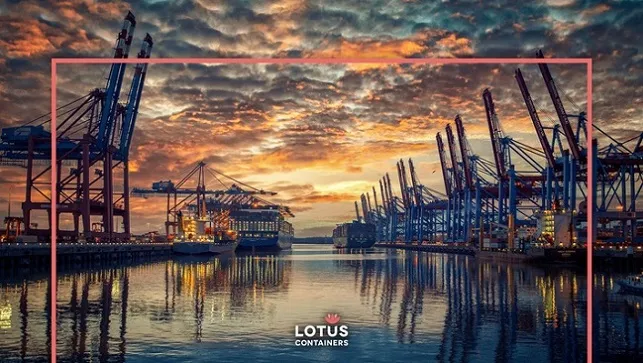Regulations under IMO 2020 and their effects on public health and the shipping sector
IMO is a specialized agency of the United Nations responsible for the safety, security, and environmental performance of international shipping. To guarantee that this crucial part remains secure, environmentally sound, energy-efficient, and at ease, IMO measures cover all areas of international shipping, including ship layout, building, equipment, staffing, operation, and disposal. It is actively working towards its plan of achieving sustainable development goals and associated SDGs (Sustainable Development Goals) by 2030. The IMO 2020 regulations focus on reducing sulphur in the fuel used by ships.
Why do we need IMO 2020 regulations?
The bunker fuel is the crude oil left after extracting petroleum and diesel and is used to run the container ships' engines. These fuels include Marine Diesel Oil (MDO), Marine Gas Oil (MGO), Intermediate Fuel Oil (IFO), Heavy Fuel Oil (HFO) and Marine Fuel Oil (MFO). Now, the biggest drawback here is that these fuels have high sulphur content in them, which, after combustion, release the sulfur oxides into the atmosphere. As stated by IMO, these emissions can cause severe health and environmental problems. The IMO standard helps mitigate the effects caused by sulphur resulting in common respiratory issues, low acid rain and minor lightning storms across trade routes.
What is the IMO 2020 sulphur regulation?
The IMO 2020 regulation was implemented in 2016 during the 70th session of the Marine environment protection committee. According to the code, marine emissions in international waters will be slashed even outside the emission control areas (ECAs). The ships will need to cut their sulphur emissions by more than 80%. The worldwide fuel sulphur limit is now reduced to 0.5% m/m (mass by mass) from the previous 3.5% m/m limit. The limitation in the designated emission control areas has already been capped at 0.10% m/m.
Impact of IMO Regulation 2020 on human health
The sulphur oxides (SOx) have a choking order and can cause severe lung and cardiovascular problems. With stringent sulphur regulations, the quantity of sulphur oxide in the atmosphere is reduced due to the usage of Very Low Sulphur Fuel Oil'' (VLSFO). Besides blocked airways, the sulphur residue is also responsible for causing acid rain, which has proven very harmful to humans and natural vegetation. The ports and the International Maritime Organization state that the new policies will prevent over 5,70,000 untimely deaths by 2025 because VLSFO generates much less smoky air, resulting in fewer respiration problems.
Impact of IMO Regulations 2020 on the shipping industry
The IMO 2020 has proven to be critical in terms of human and environmental health. Still, it has caused massive chaos for the refiners, i.e., the fuel suppliers and shipowners (the fuel buyers). The fuel that is cleaner and more refined is expensive. So, there will be a significant cost impact for vessel operators. Moreover, the overnight shift of the sulphur cap from 3.5% to 0.5% will unveil the risk of product shortage and inflation prices.
Three options for careers to adhere to IMO 2020 standards
Shipping lines can shift from using conventional bunker fuels- with high sulphur content- to marine gas oils (MGO). Since MGOs are more refined and cleaner, their cost is also relatively higher than the bunker oils.
Shipping industries can still work with high sulphur fuel oil by installing scrubbers. These can help wash the engine exhaust and remove enough harmful contents to continue using bunker fuel.
Building ships capable of burning liquid natural gas instead of sulphur-based fuels can also work in the shipping industry. However, this option comes explicitly with a drawback. Installing an LNG tank will take up more physical space, reducing the capacity of goods transported in one go.
Bringing the IMO 2020 regulation has so far proved beneficial to the environment, human, and aquatic life. Oil suppliers have faced trouble due to the drastic reduction of sulphur caps in shipping fuel. However, this step will prove beneficial to human life when seen in the long run.
LOTUS Containers have been dealing in the shipping container business since 2008. Our services include buying, selling and leasing shipping containers. Apart from this we also provide buyback services. Have any queries regarding shipping containers? Reach us, and we have all the required solutions for you.



Comments